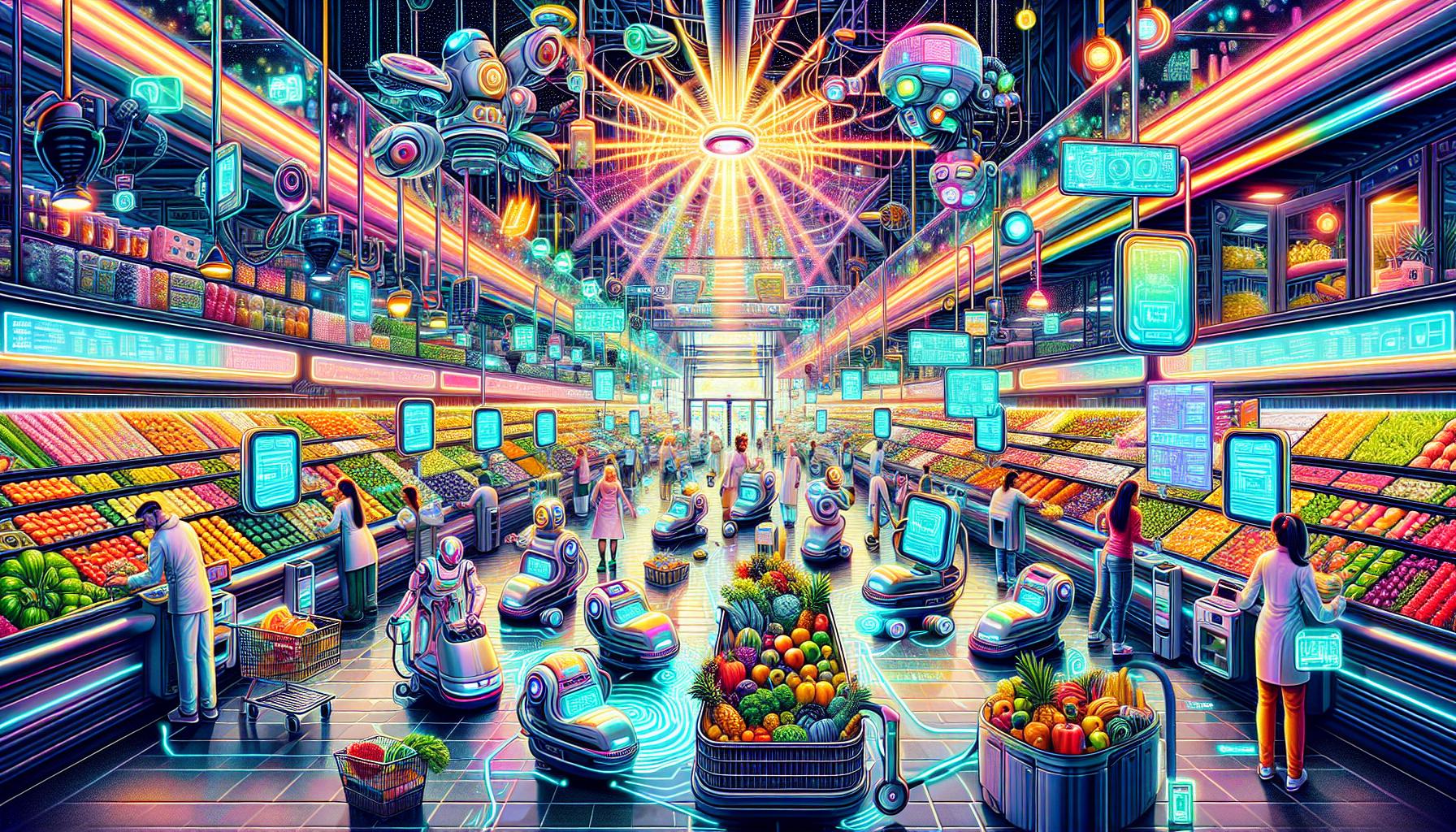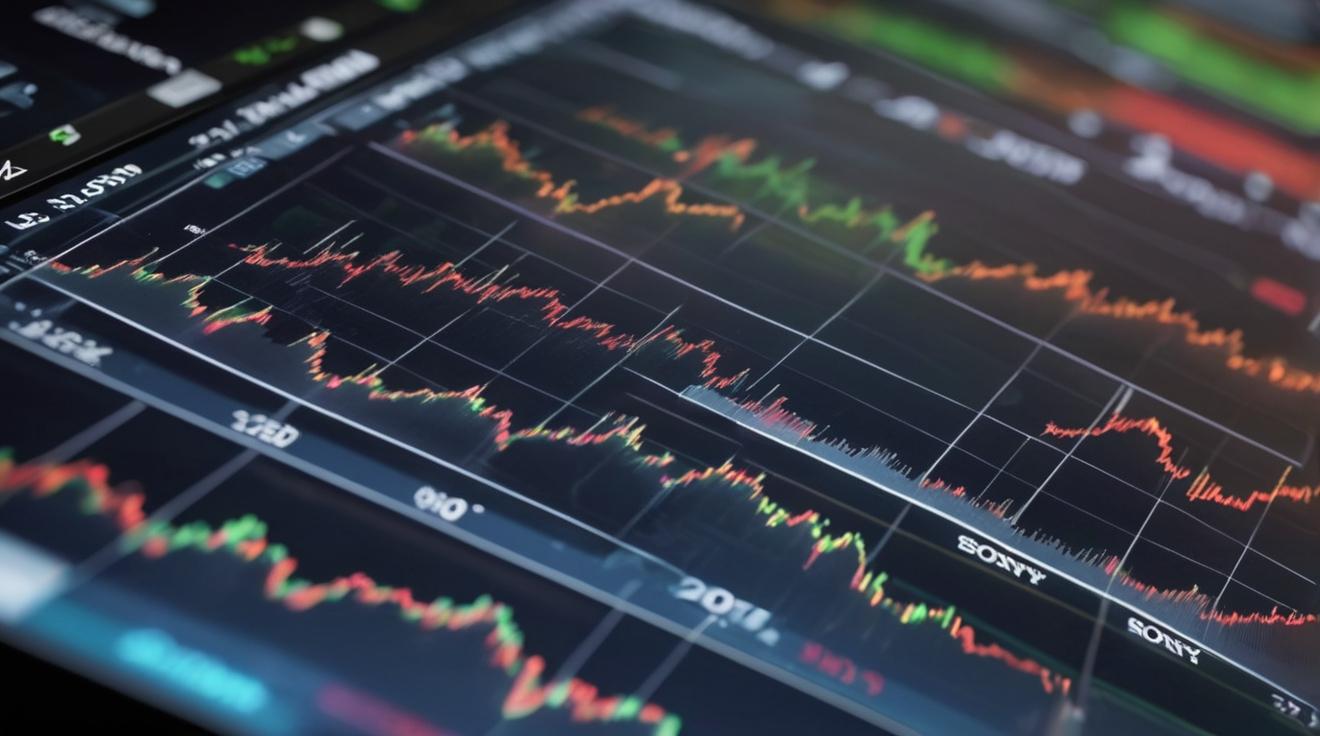The AI Technology Revolutionizing the Grocery Shopping Experience
AI technology is rapidly being integrated into physical stores, transforming the way people shop for essentials. Grocers are embracing AI solutions to optimize labor efficiencies, expedite checkout processes, and enhance the overall shopping experience. This article delves into the various ways in which AI technology is being implemented by leading grocery chains to benefit both customers and employees.
Sam’s Club plans to streamline the exit process by utilizing artificial intelligence and computer vision-based technology to verify shoppers’ receipts. This innovative approach eliminates the need for manual scanning or inspection by store employees, saving time and increasing efficiency. The receipt verification tool will be gradually introduced in multiple locations before being deployed nationwide.
Kroger, another major grocery chain, is harnessing AI technology to prevent theft and improve the self-checkout experience. By utilizing cameras and AI algorithms, the store can monitor shoppers’ scanning behavior, ensuring accuracy and minimizing errors. With AI’s assistance, theft prevention becomes more effective, providing shoppers with a secure and reliable shopping environment.
Geissler’s Supermarkets is incorporating AI-powered Caper Carts into their stores, replacing traditional shopping carts. These smart carts can automatically identify items placed in them, scan them, and add them to the shoppers’ total bill. Additionally, customers can link their loyalty accounts to the cart, receiving personalized promotions and recommendations. This integration aims to reduce lines and congestion, allowing store associates to focus more on providing exceptional customer support.
The Growing Investment in AI by Grocers
The grocery industry recognizes the immense potential of AI and has committed to a significant increase in AI spending. A joint report from The Food Industry Association, Grocery Doppio, and Wynshop projects a 400% rise in AI investment by next year. This section highlights the top three use cases for AI technology: merchandising, marketing, and supply chain optimization.
AI has already proven its value in the grocery industry, primarily in online or behind-the-scenes operations. However, grocers are now integrating AI into physical stores, enabling direct interaction with shoppers. The incorporation of AI technology enhances labor efficiencies, reduces wait times, and creates a seamless shopping experience.
AI adoption in the grocer sector is motivated by the challenging labor environment and the need for optimizing employee time. By automating redundant tasks and allowing employees to focus on customer interactions, retailers can ensure their workforce is fulfilled and able to provide the most effective service.
AI use cases in the grocery industry encompass various areas, such as merchandising, marketing, and supply chain management. With AI-powered solutions, grocers can enhance product placement, personalize marketing strategies, and optimize inventory management. AI’s potential is limitless, and its applications continue to evolve.
Overcoming Challenges and Expanding AI Adoption
While the benefits of AI in grocery retail are evident, incorporating this technology can present challenges. This section explores the potential obstacles and pitfalls associated with AI integration in stores, emphasizing the importance of a seamless and user-friendly experience for customers.
Sudip Mazumder, North America retail industry lead for Publicis Sapient, acknowledges the learning curve and potential frustration that some customers may experience when adopting AI technology. Self-checkout, for example, has shifted the burden of store associates onto consumers, resulting in a sometimes frustrating experience. It is crucial for grocers to provide adequate support and ensure a positive customer experience during the transition.
Mistakes made by AI systems can also lead to frustration among shoppers. While AI technology is advancing rapidly, it is not infallible. Instances of incorrect accusations, as seen in a social media user’s video claiming that Kroger mistakenly accused him of theft, highlight the importance of continued improvement and fine-tuning of AI algorithms.
Analyst comment
Positive news: AI technology is revolutionizing the grocery shopping experience, streamlining processes, reducing labor costs, and providing personalized experiences. Grocers are investing heavily in AI, leading to a significant transformation in the industry, benefiting both retailers and consumers. The market is expected to experience growth as more grocers adopt AI technology.













